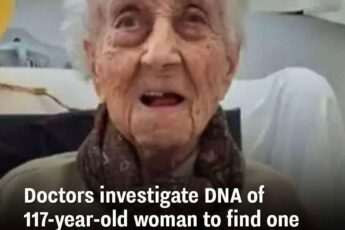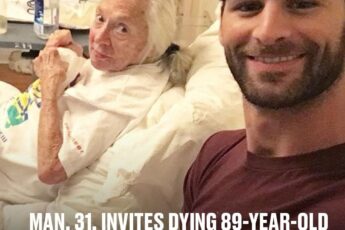Doctor visits often come with a mix of nervous anticipation and hope for answers, but they can also take an unexpected turn, offering moments of humor, awkwardness, or even profound emotion. While many people associate hospitals and clinics with seriousness and routine procedures, the reality is that human interactions often bring warmth, vulnerability, and sometimes laughter into those sterile rooms. The unpredictability of healthcare encounters can make them surprisingly memorable, as Reddit users and everyday patients alike have shared stories that stay with them for years.
Take, for example, the young athlete preparing for a sports physical. For him, the dreaded “turn your head and cough” instruction had been looming in his mind all week, building up in his imagination as some grand, uncomfortable moment. By the time the doctor gave the command, nerves had already tightened his chest. Instead of following through correctly, the poor teenager accidentally let out a loud burp. The shock of it sent him into a wide-eyed panic, while the doctor, trying to maintain professionalism, struggled to stifle laughter. After a pause, both broke into uncontrollable giggles, the awkwardness giving way to something unexpectedly human. That small moment of clumsy humor not only lightened the tension but also reminded the athlete that doctors, too, appreciate the silliness of life’s slip-ups.
Awkwardness seems to be a recurring theme in many doctor-patient stories. One woman recalled going for a routine checkup and being asked to change into a hospital gown. Flustered, she accidentally put it on backward, tying it tightly in the front as if it were a robe. When the doctor walked in, he couldn’t help but chuckle, gently explaining that the gown was supposed to open at the back. Embarrassed but laughing, the patient quickly fixed it, realizing later that almost everyone has had a similar mishap at some point. These minor blunders, though embarrassing in the moment, often become the funniest and most enduring memories from an otherwise ordinary visit.
Yet not all encounters revolve around humor. Some moments reveal the deeper, more profound side of human connection in healthcare. One man described how he went to his doctor simply expecting a prescription for recurring headaches. Instead, the physician took the time to really listen, asking thoughtful questions about his stress, sleep, and personal life. By the end of the visit, the doctor suggested therapy rather than just medication, explaining that sometimes the body’s pain is tied to emotional weight. What struck the patient most wasn’t just the advice but the compassion in the delivery. That appointment became a turning point, reminding him that healing isn’t always about pills and tests—it can also begin with a conversation and a doctor who sees you as more than a list of symptoms.
Of course, there are also moments of pure surprise, where the unexpected leaves a lasting impression. One patient shared the story of arriving at the clinic for a flu shot, nervous about needles. As the nurse prepared the injection, he looked away and braced himself, only to realize seconds later that she had already finished. Shocked, he laughed at himself, admitting how long he had built up the moment in his head, only for it to pass almost unnoticed. That small realization became a life lesson about how fear often exaggerates reality, teaching him not to let anxiety control his expectations.
Sometimes, visits also create heartwarming connections between strangers. A mother recalled bringing her young daughter for a vaccination. The child, visibly terrified, clutched her stuffed animal tightly and began to cry. The nurse, rather than rushing through, sat down at eye level, asked the child about her toy, and pretended to give the stuffed animal a “shot” first. The little girl, seeing her teddy “survive” bravely, relaxed just enough to handle her own turn. What could have been a traumatic experience turned into a tender story of kindness that the mother still tells years later.
Not all humor is accidental either—sometimes doctors themselves use it intentionally to calm their patients. One Reddit user described a moment during a prostate exam where the doctor, sensing the patient’s embarrassment, joked lightly about the awkwardness before proceeding with professionalism. That touch of levity didn’t take away from the seriousness of the procedure but instead made the patient feel seen and reassured, breaking down the walls of tension. These small, thoughtful gestures reveal how much bedside manner can transform a stressful encounter into one filled with trust.
Other stories highlight the mix of vulnerability and humanity that doctor visits bring out. Imagine walking into an exam room and nervously explaining embarrassing symptoms, only for the doctor to nod knowingly and share that dozens of patients bring up the exact same issue every week. Suddenly, what felt isolating becomes normal, and the patient leaves not only with treatment but also with a sense of relief. Medicine has a unique way of reminding people that they are not alone in their struggles—that many others face the same worries, fears, and mistakes.
And then there are the rare, deeply moving experiences where a routine appointment leads to life-changing discoveries. A patient might go in for something as simple as a checkup, only to learn of an underlying health condition caught just in time. These moments can be frightening but also profoundly grateful ones, as patients often credit their doctors’ diligence with saving their lives. The gratitude that follows creates a bond of respect and admiration that is rarely forgotten.
In the end, whether it’s the burst of laughter over an awkward burp during a physical, the embarrassment of wearing a gown the wrong way, or the overwhelming gratitude of receiving unexpected compassion, doctor visits often hold more than just medical significance. They remind us of our shared humanity, the vulnerability we all carry, and the small but powerful ways humor and kindness can shape even the most clinical environments. For many, those unforgettable encounters remain etched in memory not because of the procedures themselves but because of the people—the doctors, nurses, and patients—who brought life, laughter, or empathy into the room.
So while doctor visits may start with nervous anticipation and the hope for answers, they often leave us with something far more lasting: stories we carry, moments we cherish, and reminders that in the unpredictable journey of health, the most human connections often come when we least expect them.






